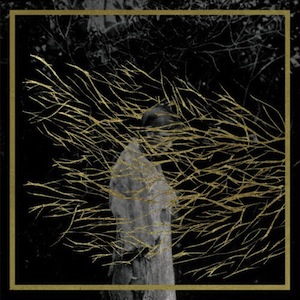Three years ago, Matthew Barnes emerged from The Wirral with an almost album-length EP, Dagger Paths. It immediately caught the attention of the music press with its strange, blurry mixture of psychedelic pop and languid dubstep. Engravings follows the same vein, but with Dagger Paths‘ rougher edges honed into a series of enigmatic spectral half-songs that swirl and bite in successive layers of oblique, occasionally abstract, textures.
To record Engravings, Barnes made the audacious choice of mixing his tracks outdoors, immersing himself in the supposedly spiritually-charged environment of the Wirral peninsula. As such, even if his music descends from the tradition of dubstep and UK house, it is also imbued with a nebulous sense of mystery comparable to vintage English folk acts such as Forest and Mr Fox, as well as more recent weird psychedelic outfits like Hacker Farm, IX Tab and Eric Zann. Most of the tracks feel slightly windswept and spacious, even as they teem with little sonic details, as if Barnes is trying, in a slightly evasive way, to recreate a mind’s eye image of the shores and rocky outcrops of his home territory.
Having said that, the focus on Engravings isn’t narrow, and, as on Dagger Paths – a record adorned with an eerie image of a Japanese geisha – Barnes dots his tracks with flourishes that evoke a wider, perhaps dreamlike, world. On opener ‘Ljoss’, for example, a flurry of Spanish guitar segues into slaloming notes that appear to be performed on an electrified koto. Similar unexpected flourishes creep into pretty much every track, in the form of distended woodwinds on the gorgeous ‘Thor’s Stone’ (a reference to a stone slab local to Barnes that was supposedly used for Viking sacrifices) or bursts of sampled choir and orchestra on ‘Irby Tremor’, which are distorted in a manner redolent of The Caretaker, only with a focus outward rather than into the recesses of the mind.
Three years ago, critical consensus seemed to mostly draw parallels between Forest Swords and the American bedroom scenes rather stupidly dubbed chillwave and witch House, but, truth be told, Barnes’ music seems closer in spirit to the melancholic dubstep of Burial, occasionally even blurring into the bass-heavy lovers’ rock mutation that is King Midas Sound. Beats are heavy and slow, with none of the sort of scatter-gun immediacy of the post-dubstep scene.
Industrial textures that echo Liverpool’s maritime tradition abound, while the bass, which is admittedly more withdrawn than on pure dubstep, keeps everything ticking along like a steady heartbeat. Equally similar to Burial is the meticulous cohesion of these tracks, exemplified by the lush centrepiece ‘An Hour’. Over exotic, Eastern-sounding textures that could have been sampled from Tin Drum-era Japan, disembodied voices mesh and meld in a foggy lament that is both touching and hypnotic. Most of the tracks on Engravings feel like torch songs that have somehow drifted out of aural focus, like blurred photographs or smoky black and white film footage. But where acts like Grouper or Lee Noble seem to be deconstructing song altogether, Barnes seems to be engaged in a more subtle exercise, assembling strands of song formats into elliptical constructions with absolute precision.


